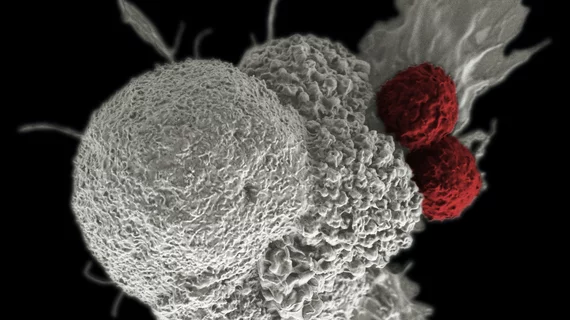Deep learning to improve immunotherapies for cancer, other diseases
Researchers at Johns Hopkins Kimmel Cancer Center have used deep neural networks to draw important insights—prescriptive as well as descriptive—into adaptive immunity from massive stores of T-cell receptor sequencing data.
The team is presenting the technique as open-source software. Their aim is to help clinical investigators who are working to understand the immune system’s response to cancer, infectious diseases, autoimmune conditions—or any other disorder that T-cell receptors help fight.
Nature Communications has published the study report.
“As sequencing-based technologies only become more ubiquitous, algorithms such as the one presented in this work will find further utility in identifying and characterizing relevant biological signal, yielding new understandings of complex genomic concepts hidden within this vast amount of data,” write MD/PhD candidate John-William Sidhom and colleagues.
The T-cell receptor, or TCR, is the immune-system component that unleashes white blood cells to fight and try to kill infected, foreign and cancer cells.
Calling their open-source package DeepTCR, the authors tell Johns Hopkins’s news division the software uses supervised and unsupervised deep learning.
The unsupervised approaches “allow investigators to analyze their data in an exploratory fashion, where there may not be known immune exposures, while the supervised approaches will allow investigators to leverage known exposures to improve the learning of the models,” Johns Hopkins explains in a news release.
“As a result … DeepTCR will enable investigators to study the function of the T-cell immune response in basic and clinical sciences by identifying the patterns in the receptors that confer the function of the T cell to recognize and kill pathological cells.”
The study is available in full for free.

